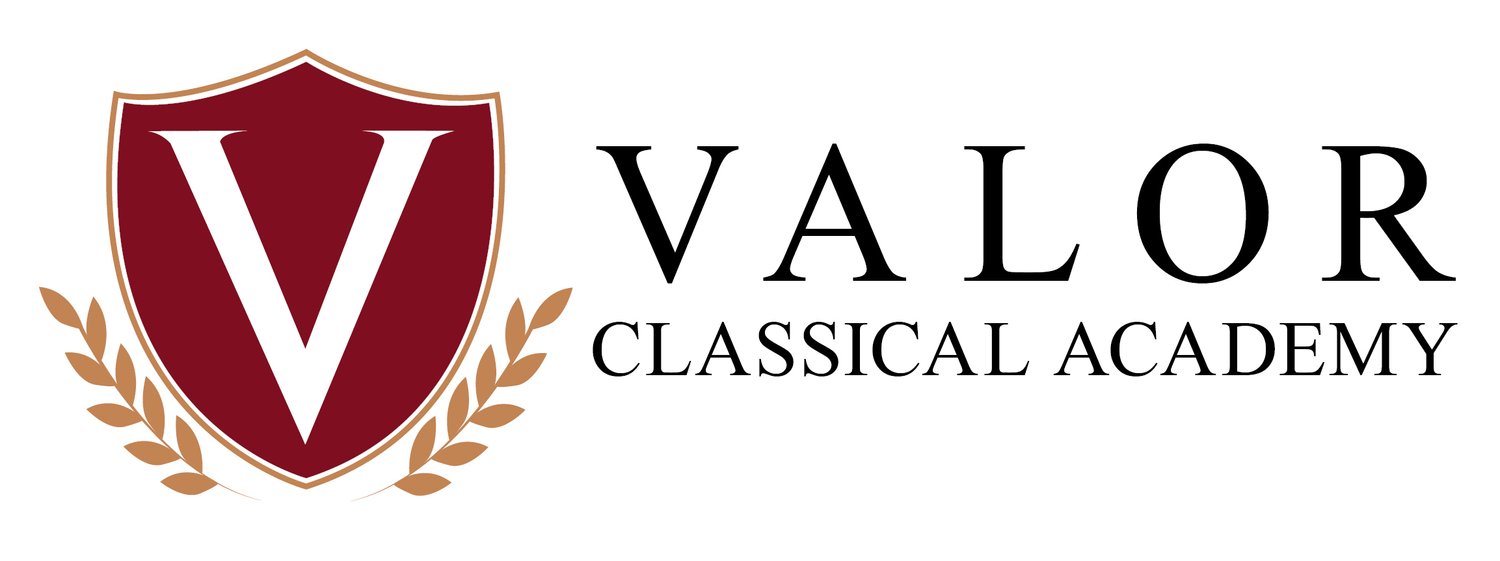Frequently Asked Questions
Q: What is a charter school?
A charter school is tuition-free school choice, separate and distinct from the district school corporation. As such, it establishes a new school corporation outside of any district. This freedom allows for some autonomy in choosing the school’s curricula and model of education in exchange for higher standards of accountability and transparency. Charter schools are public schools open to all Hoosier students. Unlike public magnet schools and private schools which can set enrollment criteria, charter schools must have an open enrollment policy. A lottery must be held if the number of students who wish to attend the charter school is greater than the number of available seats in the school. Visit Indiana Charter Schools Network to view a list of Indiana Charter School Facts.
Q: What grades does Valor serve?
Valor is established to serve K-12 students. Upon opening, the school will serve grades K-6 and will add a grade each year.
Q: What is classical education?
At Valor, teachers lead students toward moral and intellectual virtue by means of a rich and robust course of study in the liberal arts and sciences, with instruction in the principles of moral character and civic virtue. A classical education is a well-rounded course of study rooted in human nature, structured around the humanities and the sciences, moral formation, civic education and thoughtful patriotism. The study of Latin at Valor is important to the school’s classical education but it isn’t overstated. Classical education consists of 3 stages of learning: Grammar, Logic, Rhetoric. In a classical education, each stage has its own purpose and uses content that is reintroduced at each level for deeper study.
Grammar. Instruction relies on absorption of facts often by memorization and recitation.
Logic. Students begin to put facts together and form conclusions.
Rhetoric. Students learn to make effective arguments to inform and pursuade.
Q: Why Latin?
The study of Latin provides a key to learning modern languages and expands English vocabulary. It improves reading, writing, and speaking skills, enhances problem-solving abilities, and aids in mathematical competency. It introduces the terminology of science and also provides a first-hand review of ancient Rome. Studying Latin raises standardized test scores.
Q: What are the Liberal Arts?
The liberal arts are the pillars of a classical education. Language & Literature, History & Government, Mathematics & Sciences, Music & Art are often referred to as the ‘liberal arts’.
Q: Why an affiliation with Hillsdale College?
Valor Classical Academy is a Hillsdale College Curriculum School, a distinction that offers our school access to a tried and true K-12 Curriculum from the Hillsdale College K-12 Education Office. For more information about Valor’s affiliation with Hillsdale College, visit the Curriculum Overview page.
For more information about Hillsdale College support for schools like Valor Classical Academy, visit k12.hillsdale.edu.
What is American Classical Education?
Hillsdale Classical Schools Across the Nation
Founding a Hillsdale Classical School
Frequently asked questions about Hillsdale’s support for K-12 schools
Q: Does Valor require teachers to be licensed?
All Valor Classical Academy teachers will be highly qualified. The school seeks out content experts. It’s well understood that highly effective teachers who use an excellent, proven curriculum in the classroom, have the greatest impact on student success. To teach at Valor, a teacher must hold a bachelor’s degree from a regionally accredited institution with either a major of the earned degree in the content area or must pass the appropriate licensure exam in the content area the candidate wishes to teach. As with district schools, Career Specialists are also permitted to teach at the secondary level once meeting the state requirements.
Q: What are the core elements of Valor’s academics?
Core elements of Valor’s academic program include:
The Hillsdale College’s K-12 Program Guide: Significantly borrows from the Core Knowledge Sequence for grades K-8. The Hillsdale Program Guide is an excellent and thoughtfully designed course of K-12 study in the liberal arts and sciences which provides a scope of the topics to be taught, a sequence in which to teach them, and a complement of vetted and reviewed books, primary sources, and other resources for teachers and students using the guide. The Hillsdale College K-12 Program Guide provides a comprehensive scope and sequence that lays a strong foundation in the key subjects and slowly builds towards mastery. Graduates should be well prepared intellectually, morally, and civically, regardless of future vocations.
An explicit phonics approach to literacy: Literacy Essentials is an “Orton-based” program. Instruction is multi-sensory, explicit and direct. It uses question and answer analysis and graphic organization of the content. The program begins with writing and spelling to teach reading - wiring children's brains to think deeply. The curriculum covers the areas of phonemic awareness, the alphabetic code which includes 72 common English spelling patterns or phonograms (first Basic Code then advanced code), orthography, vocabulary, writing and grammar, reading from accuracy to automaticity, and reading comprehension.
Requirement of a mastery of spelling, proper grammar, good handwriting and cursive
The Singapore Math method is focused on mastery, which is achieved through intentional sequencing of concepts. Some of the key features of the approach include the CPA (Concrete, Pictorial, Abstract) progression, number bonds, bar modeling, and mental math. Instead of pushing through rote memorization, students learn to think mathematically and rely on the depth of knowledge gained in previous lessons.
Civics Education: The civics curriculum at Valor determines what students should learn in history and civics based on the answers to a single question: What ideas, words, and deeds have most significantly formed the world into which students were born? Studying the answers to this question provides students the fullest understanding of the world in which they will live their lives. This curriculum asks simply, in light of the vastness of reality and the limits of human existence, “What do American students in particular need and, most importantly, deserve to encounter and consider in their K–12 civic education?” The answer is first knowledge and understanding of American history and of the American republic as governed by the Constitution and morally grounded in the Declaration of Independence.
Latin: the study of Latin provides a key to learning modern languages and expands English vocabulary. It improves reading, writing, and speaking skills, enhances problem-solving abilities, and aids in mathematical competency. It introduces the terminology of science and also provides a first-hand review of ancient Rome. Studying Latin raises standardized test scores.
Teacher-led instruction with increased use of Socratic techniques as students progress through the school
Primary source documents are used to the maximum extent possible.
Valor Classical Academy ensures that the school’s academic standards meet or exceed Indiana Academic Standards.
Q: Will Valor serve students with special needs?
Yes, Valor serves students with special needs. The focus of the school is to provide support and tools to enable all students to be successful in school and life. Direct instruction, structure, and coherence of the Core Knowledge curriculum along with Valor’s explicit phonics program are very effective in supporting students with special needs. Inclusion, differentiated instruction, and interactive strategies will be implemented as appropriate for students identified with disabilities. All special education personnel shall be certified, endorsed, or licensed in the area or areas of assignment in accordance with 34 CFR §300.156 or appropriate state agency credentials. Valor will provide a FAPE (free appropriate public education) under the section 504 regulation for students with disabilities in order to meet the need for special education and related services (34 CFR §300.115) and ensures compliance with the federal laws for charter schools as set forth in guidance from the Office of Elementary and Secondary Education.
Q: How is Valor held accountable?
If at any time the charter school does not meet the requirements of the contract with their state authorizer, the authorizer can close the school, unlike district public schools. Valor’s charter is available online. The State Board of Education is required to provide a formal evaluation of the overall state of charter school outcomes in Indiana every 5 years. Unlike some district public schools, no student is forced to attend a charter school. Parents make the decision to send their child to a charter school because they believe it will be the best education environment for their student. Many would argue that a parent who continues to choose a charter school is the ultimate form of accountability. Charter schools are required to have a third-party financial audit completed every year, unlike district public schools which are only audited by the State Board of Accounts every other year. As a charter school, Valor is also required by law to administer state assessments.
Q: If charter schools receive public funding, why is Valor asking for donations?
Valor Classical Academy is being established by volunteers and donations. The expenses of the establishment period before Valor becomes eligible for government funding is at least $250,000, which covers organizational expenses, consultation needs, media and marketing, pursuit and preparation of a building, maintenance and utilities, classroom fixtures and furniture, books and supplies, organizational software, and the hiring of a school leader who will guide Valor’s establishment the year prior to opening by developing the school and its systems, and hiring Valor’s staff.
After opening and once government funding is issued, charter schools receive less funding than district public schools. Indiana charter schools do not collect local property tax dollars and have no ability to seek a referendum. This creates a perpetual gap in funding. These tax dollars are used to construct and maintain buildings, pay for utilities, and provide transportation. If the property tax gap is not closed by fundraising, Valor must divert state tuition support dollars from teachers and student instruction expenses to pay for these other necessities. Fundraising is an essential part of every charter school.
Q: What sports and co-curricular activities does Valor offer?
Like many charter schools, Valor offers co-curricular activities based on student demand and the school’s access to quality coaches and advisors to lead activities. These options will be listed as they develop and become available. Valor will partner with local clubs as much as possible in the early years to offer a variety of programs available to community students.
Q: Where is Valor located?
Generally, Valor will be located in Hamilton County, Indiana. Details about the school’s specific location will be posted on this website as information becomes available. Reports on Valor’s efforts to access the former Orchard Park Elementary school building owned by Carmel Clay School Corporation are available in our News, and updated information will be posted on the school’s Facebook page.






